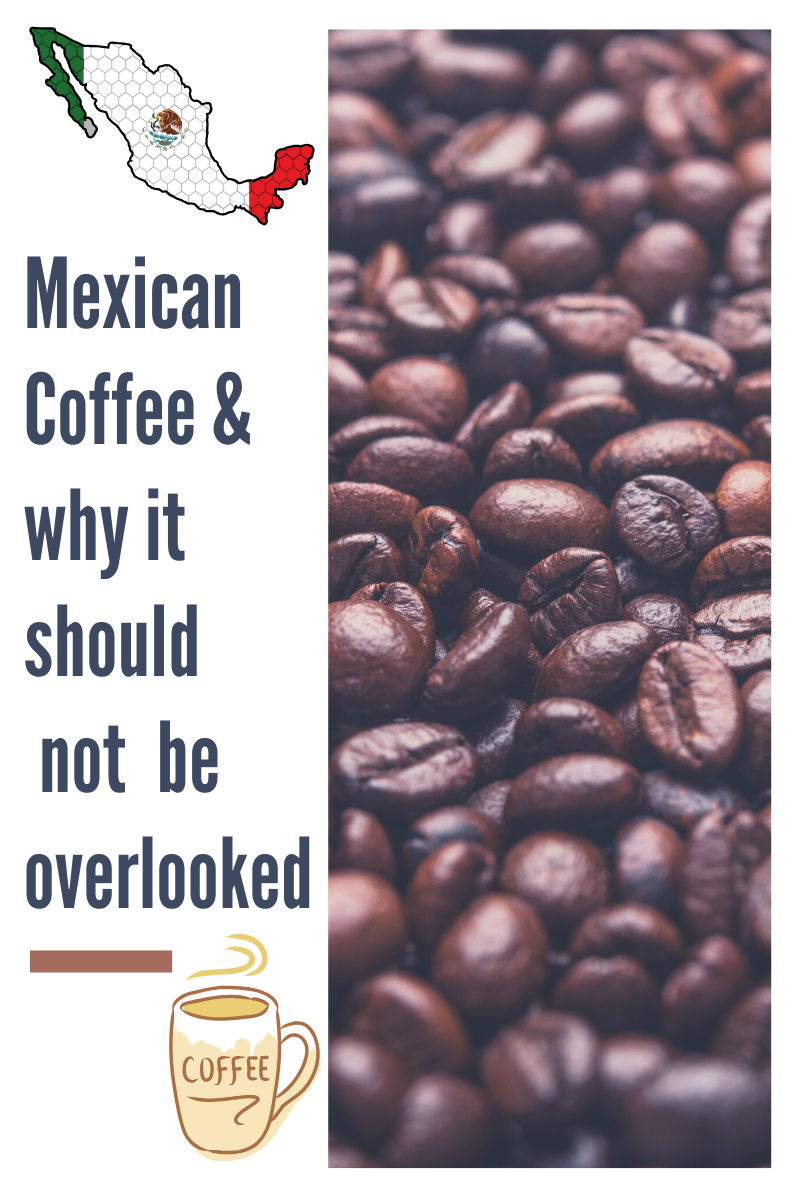
Mexican Coffee and why it shouldn't be overlooked
Share
So in honor of Cinco De Mayo, lets talk Mexican Coffee! I don’t know about you, but when I think about Mexico I think of the white sandy beaches, all inclusive resorts, margarita's, and the fun I had all those years at spring break. Needless to say, coffee is definitely not the first thing that pops into my mind when I think Mexico...or at least it wasn’t until the last few years. Maybe I’m getting old now, or maybe because spring break was more years ago than I care to admit, but there are really some amazing coffees being grown in portions of Mexico and I think it’s time we recognize Mexico as the amazing coffee source that it is!
So why don't we necessarily think of Mexico when we think of good coffee?
I honestly don't know the answer to that question and I am going to do my best to change that perception! Mexico is one of the largest producers of coffee in the world. According to the Organic Trade Association, organic coffee has been the leading U.S. organic import since 2011. Let me say that again... coffee has been the leading U.S. organic import since 2011 and Mexico has consistently been the 2nd highest importer of organic coffee into the U.S. during that time frame as well. Most of Mexico's coffee is grown in the southern part of the country, with Veracruz, Chiapas, and Oaxaca being some of Mexico's most well-known coffee producing regions. These regions border Guatamala and are also near Honduras, and Costa Rica, who, lets be honest, are all countries that we may actually think of when we think of quality coffee. Though much lesser known for its coffees than it's Central America counterparts, last year Mexico was the 9th largest producer of coffee in the world, exporting over 500 millions pounds! Honduras did produce more coffee than Mexico, coming in 6th in the world, but Guatemala was 10th, and Costa Rica was only 15th.
| Country | 60 kilogram bags | Metric Tons | Pounds |
|---|---|---|---|
|
|
44,200,000 | 2,652,000 | 5,714,381,000 |
|
|
27,500,000 | 1,650,000 | 3,637,627,000 |
|
|
13,500,000 | 810,000 | 1,785,744,000 |
|
|
11,000,000 | 660,000 | 1,455,050,000 |
|
|
6,400,000 | 384,000 | 846,575,000 |
|
|
5,800,000 | 348,000 | 767,208,000 |
|
|
5,800,000 | 348,000 | 767,208,000 |
|
|
4,800,000 | 288,000 | 634,931,000 |
|
|
3,900,000 | 234,000 | 515,881,000 |
|
|
3,400,000 | 204,000 | 449,743,000 |
|
|
3,200,000 | 192,000 | 423,287,000 |
|
|
2,200,000 | 132,000 | 291,010,000 |
|
|
1,947,000 | 116,820 | 257,544,000 |
|
|
1,800,000 | 108,000 | 238,099,000 |
|
|
1,492,000 | 89,520 | 197,357,000 |
So what is so special about Mexican coffee beans??
Southern Mexico falls into what is called "The Bean Belt". That is the band around the Earth in between the Tropics of Capricorn and Cancer in which almost all the Arabica coffee plants are grown. And if you know anything about coffee beans, it should be know that Arabica beans are much superior to Robusta beans in quality and flavor. Not necessarily caffeine, as Robusta provides more of that, but with the quantity of coffee that I drink a day, I'm getting enough caffeine that I'll stick with my higher quality Arabica beans anyday!! Anyway, this area provides the perfect climate for coffee to grow, as the trees need to be grown in high altitudes, in moist tropical climates with both dry and rainy seasons and where the soil is rich. The forested mountains of the Chiapas and Oaxaca regions with their rich volcanic soils are near perfect conditions for Arabica plants to thrive. Some of the best coffee in Mexico comes from the areas of Oaxaca and Chiapas…coincidentally, that is where we source our beans from. Coffee produced from this region is called Altura, which means “high grown”. When it comes to coffee production, higher elevations generally means better beans. Arabica coffee plants are grown at elevations of 3,000-6,000 ft. This is important because the cooler temperatures and less oxygen causes the plants to grow more slowly which produces a more dense, richer bean with more concentrated flavors. Mexican Altura coffee beans are considered to be very high quality and are among the finest grown Mexico. Most of the coffee from Mexico is grown in small, privately-owned farms. According to the SCA it has over 500,000 smallholder farming families, 70 percent of whom farm less than 10 hectares of land. Large estates are rare - only 0.06 percent of farms are larger than 50 hectares. Because of the small size of the coffee farms, everything from harvesting, sorting, to drying are all done by hand. Hand sorting of the beans is important in eliminating beans with defects and flaws that aren't allowed in specialty grade coffees. Better beans means better taste. The care taking throughout this whole process is another reason Mexican coffee is so amazing.

Shop our Mexico Altura Coffee here.
The coffee from these regions are generally characterized by mild flavor, medium body and a pleasantly dry acidic snap. It often has chocolate, or nutty flavor notes and is very flavorful without being over powering. Our Mexico Altura has hints of chocolate and cinnamon, which I love. Mexican coffee has become one of my favorites. I truly think everyone should at least give it a try and it definitely should not be ignored on your quest to find the perfect cup. So grab your Margarita today and wake yourself up with the perfect cup of Mexican coffee in the morning!! You won't regret it.
Check our our recipe for Mexican Mocha Coffee here!
Read more at A Beautiful Bean Coffee Blog
Shop our other fresh roasted specialty coffees

